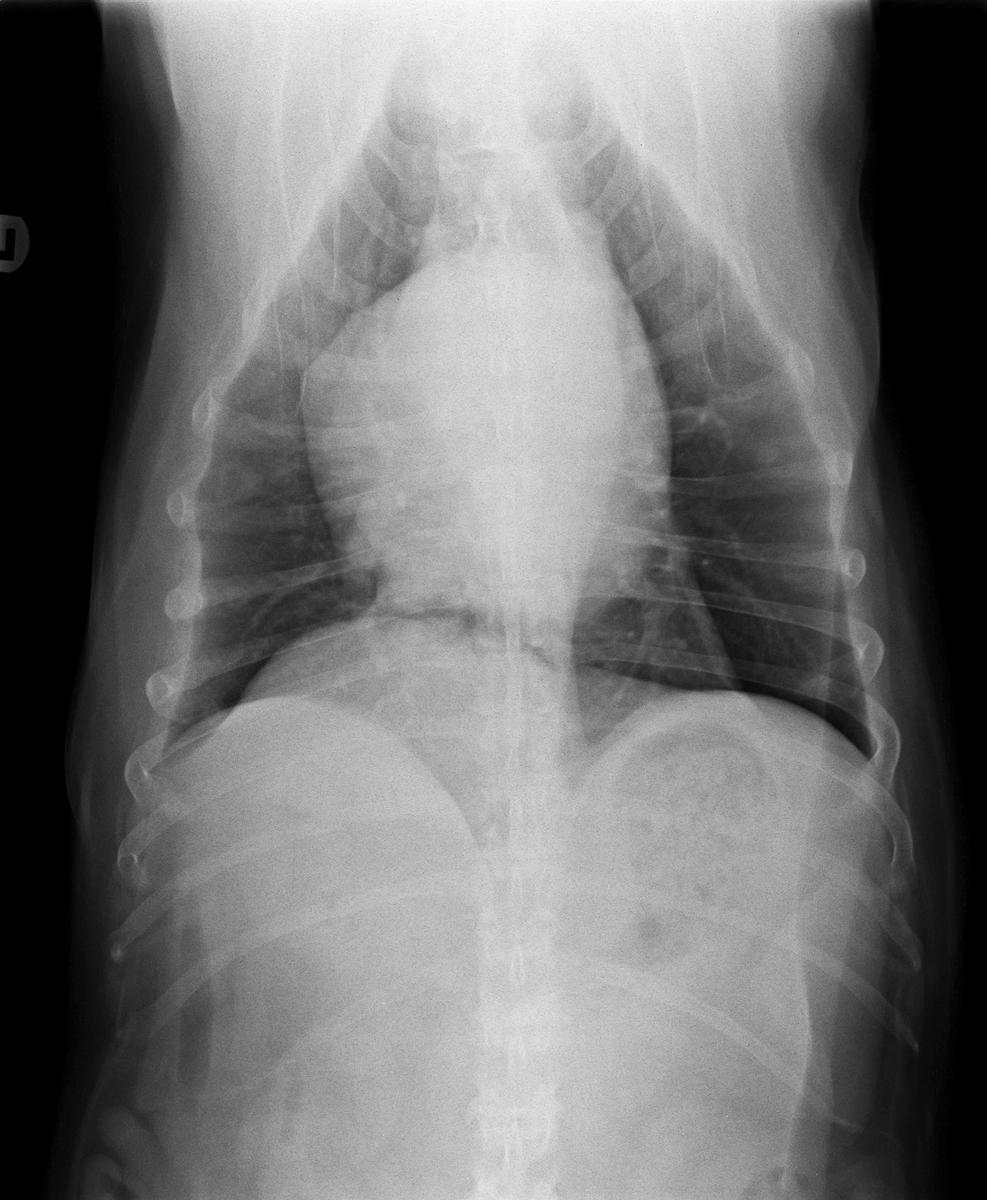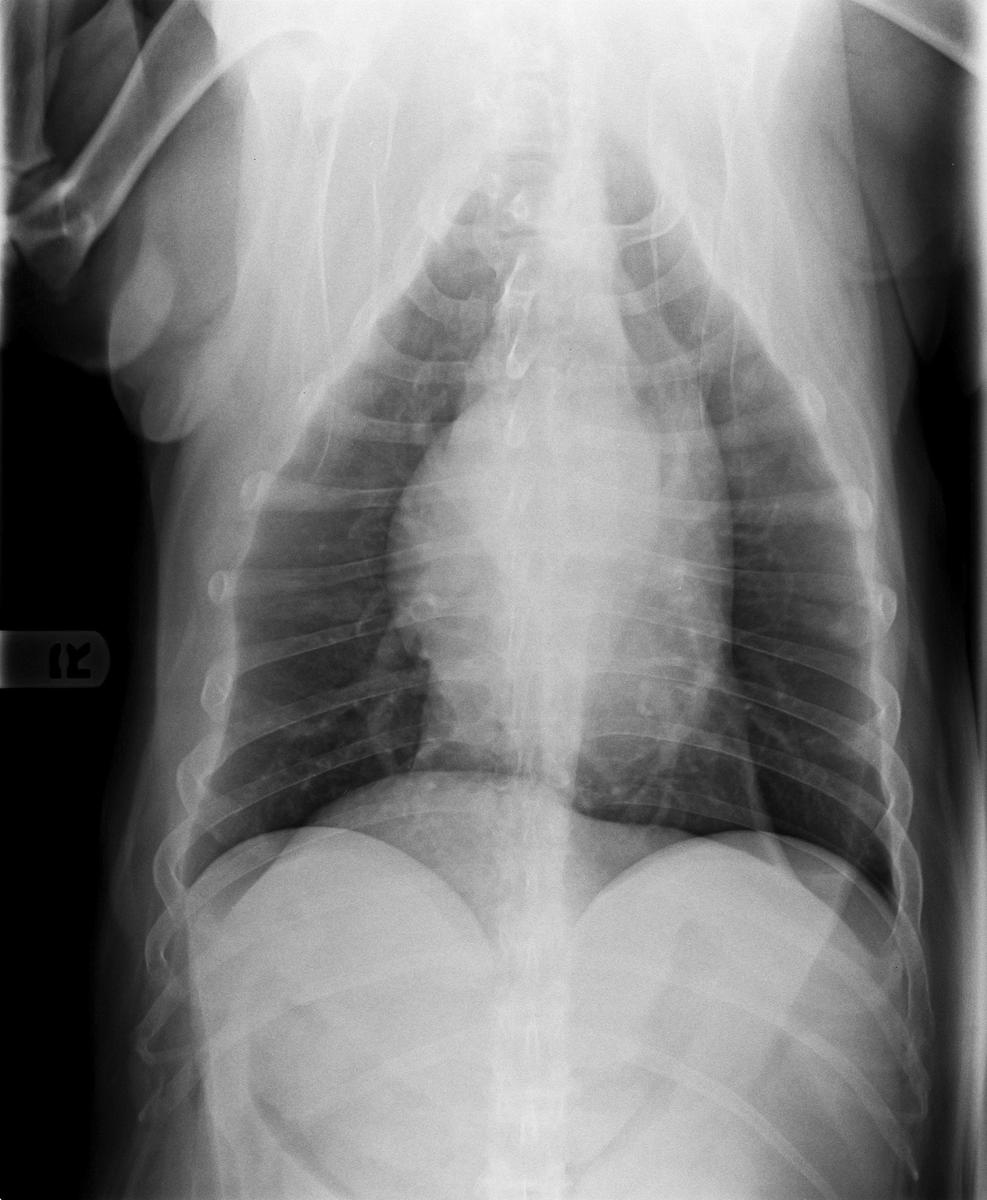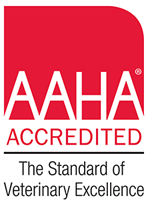Why is everyone talking about grain free foods?
Over the past several years, the pet food industry has introduced an increasing number of foods marketed as “grain free”. These boutique foods are typically more expensive as they contain more exotic ingredients, but are marketed as being healthier for pets. In order to eliminate grains (wheat, corn, soy, etc.), they have used predominantly peas, chickpeas and/or lentils, with some also containing potatoes and/or sweet potatoes. Unfortunately, the industry seemed to forget, or perhaps ignore, the fact that even wolves ingested grains in the contents of ruminant animals they preyed upon. So although vegetables are extremely important for humans to consume & not necessarily bad for pets in modest amounts, to replace all of the grains in the food with them might not have been the best idea. Since 2014 the FDA has received complaints of dogs that have been on grain free diets developing dilated cardiomyopathy, a heart disease discussed below. Over the past year or so the number of reports has skyrocketed, which makes sense seeing as how so many more grain free diets are available & marketed to pet owners. This has forced the FDA to start an investigation & issue several statements. Please note that the controversy has not been limited to grain-free foods, but 90% of the reported cases were being fed products labeled grain free. There has also been some controversy over foods with exotic sources of protein such as fish, kangaroo, etc. Therefore some nutritionists have used the term "BEG" - boutique/exotic/grain free.
What is dilated cardiomyopathy or DCM?
It is a very serious heart condition in which the heart muscle becomes stretched and the heart becomes enlarged. The condition can lead to heart murmurs, abnormal heart rhythm (arrhythmia) and if left untreated, congestive heart failure and death.
What causes DCM?
Traditionally, it has been an inherited condition in large and giant breed dogs (Dobermans, Boxers, Great Danes and Irish Wolfhounds are the most known breeds). In the last year or so, veterinary cardiologists have seen a significant increase in DCM cases in non-traditional breeds. It was then discovered that diet (boutique/grain-free/exotic ingredients) was playing a role in these cases. At first, it was thought that a taurine deficiency was the cause but more evidence has revealed that taurine levels were normal in many patients. We don’t yet know the exact mechanism but the current theory is these diets contain much higher levels of peas, lentils, potatoes & sweet potatoes leading to cardiac changes.
What are the signs of DCM?
Weakness, exercise intolerance, coughing or fainting and in some instances death
What foods have been linked to nutritional DCM?
|
PLEASE NOTE THIS IS NOT AN ALL-INCLUSIVE LIST BUT JUST THOSE CONFIRMED BY AN ECHOCARDIOGRAM & REPORTED TO THE FDA. WE SUSPECT THERE ARE MANY MORE UNDIAGNOSED, UNREPORTED CASES. |
What should I do now?
If you are feeding a grain-free/boutique food/exotic ingredient food and your pet has no symptoms, we recommend changing diets to Royal Canin, Science Diet, Iams, Eukanuba or Purina Proplan. These companies are the only ones that perform feeding trials and they meet both the World Small Animal Veterinary Association and AAFCO criteria. Royal Canin, Science Diet and Purina all have veterinary nutritionists on staff as well.
If you think your pet may have symptoms or you are concerned for any reason, we recommend making an appointment with your veterinarian. Your veterinarian will do a physical exam and listen to the heart to check for a murmur or arrhythmia. The veterinarian may want to do x-rays, bloodwork and/or refer to a veterinary cardiologist for further workup.
Even if my pet is diagnosed with DCM, can’t it be reversed?
Once a pet is diagnosed with dilated cardiomyopathy, he/she may be placed on medication which might control any clinical signs and lessen the stress on the heart. (Obviously, if the pet is on a grain free diet, the food should be switched to a diet as recommended above.) In this way, the condition may be controlled, but the changes to the heart may never go away. There are many factors which would determine the pet’s long-term prognosis.
Do I really need to worry about this? Is it really that common?
Within the last few months, we’ve had at least 3 patients present with an enlarged heart and who had been on a grain free food. Here is an example of a patient who came to see us for occasional coughing in November of 2018. Heart measured and looked normal at that time. The patient returned in May of 2019 for worsening symptoms for the previous 2-3 weeks. X-rays show a significant change in heart size and shape. The pet had been eating one of the above listed foods for several months before changes were seen on x-rays. The dog was placed on medication to help the heart and its diet was changed. Within 2 weeks, the patient had clinically improved significantly. In this case, we were able to get this patient started on medication and change food early enough to hopefully prevent long-term damage but not all patients are this lucky. In many cases, there has been significant, irreversible damage done before therapy could be started.
*These images were shared with owner permission*
 May 2019
May 2019
 November 2018
November 2018
What about cats?
Very few of the animals affected that have been reported to the FDA have been cats (14 out of 560) and as such they do not seem to be nearly as at risk.
Please know that the most important thing you can do as an owner is research what your pet is eating. It is true that the FDA has not offered any specific recommendations to discontinue feeding these diets. We do not know exactly what is causing the dilated cardiomyopathy. Perhaps there is a genetic predisposition that when the predisoposed pet eats a certain food, heart disease is more likely to develop? We don't know. But because we have so many concerned clients, we felt the need to respond. Nutrition is a hotly debated topic in the animal world and many people have very strong views. There is not a single diet that can be recommened for all patients. The following list of references are recommended for further reading. The first is the FDA's most recent publication and the next 2 come from the World Small Animal Veterinary Association.
https://www.wsava.org/wsava/media/arpita-and-emma-editorial/selecting-the-best-food-for-your-pet.pdf
(Since the original posting, in response to our Facebook page, we have tried to acknowledge that it is not simply "grain free" food that has been the cause for concern. We have also included the final paragraphs that include the statement on cats and references for further reading. We undertand that there is speculation as to the impact large pet food companies have on what is published. We also acknowledge those companies listed in the FDA's report have formulations that were not problematic. Every brand of pet food has multiple formulations and almost all brands have been affected at some point and time with a recall or negative reviews on at least some of their products. Please know that veterinarians do not receive kickbacks for making recommendations. The reason these companies were named is because they have board certified veterinary nutritionists on staff who actually formulate the products and the products are predominantly manufactured in facilities that are owned by that company (manufacturing is not outsourced), & there is nutritional information available on their formulations which meet AAFCO standards.)

